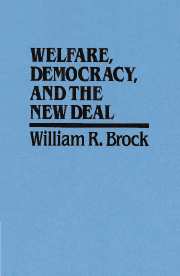2 - Local responsibility
Published online by Cambridge University Press: 07 December 2009
Summary
Government
After a lifetime of public service, experience of revolution in two countries, two terms as President, and frequent occasions to reflect on the political structure of nations, Thomas Jefferson declared that the establishment of small political units was “the most fundamental measure for securing good government, and for installing the principle and exercise of self-government into the fiber of every member of our commonwealth.” He maintained that the township of New England was “the wisest invention ever devised by the wit of man for the perfect exercise of self-government and for its preservation.” Nor need administrative efficiency be sacrificed to promote political training, for “in government as well as in every other business of life, it is by subdivision of duties alone, that all matters, great and small, can be managed to perfection.”
Alexis de Tocqueville agreed that the secret of just government was the proliferation of self-governing political units, and asserted that without them a nation might possess the forms of free government but lack the spirit of liberty. Half a century later, James Bryce reaffirmed Jefferson's praise for the New England town and its town meeting. Of all of the forms of local government, it was the “cheapest and most efficient … the most educative to the citizens who bear a part in it.” In one short sentence, Bryce summed up a great American tradition: “The Town meeting has been not only the source but the school of American democracy.”
- Type
- Chapter
- Information
- Welfare, Democracy and the New Deal , pp. 50 - 83Publisher: Cambridge University PressPrint publication year: 1988
- 1
- Cited by



